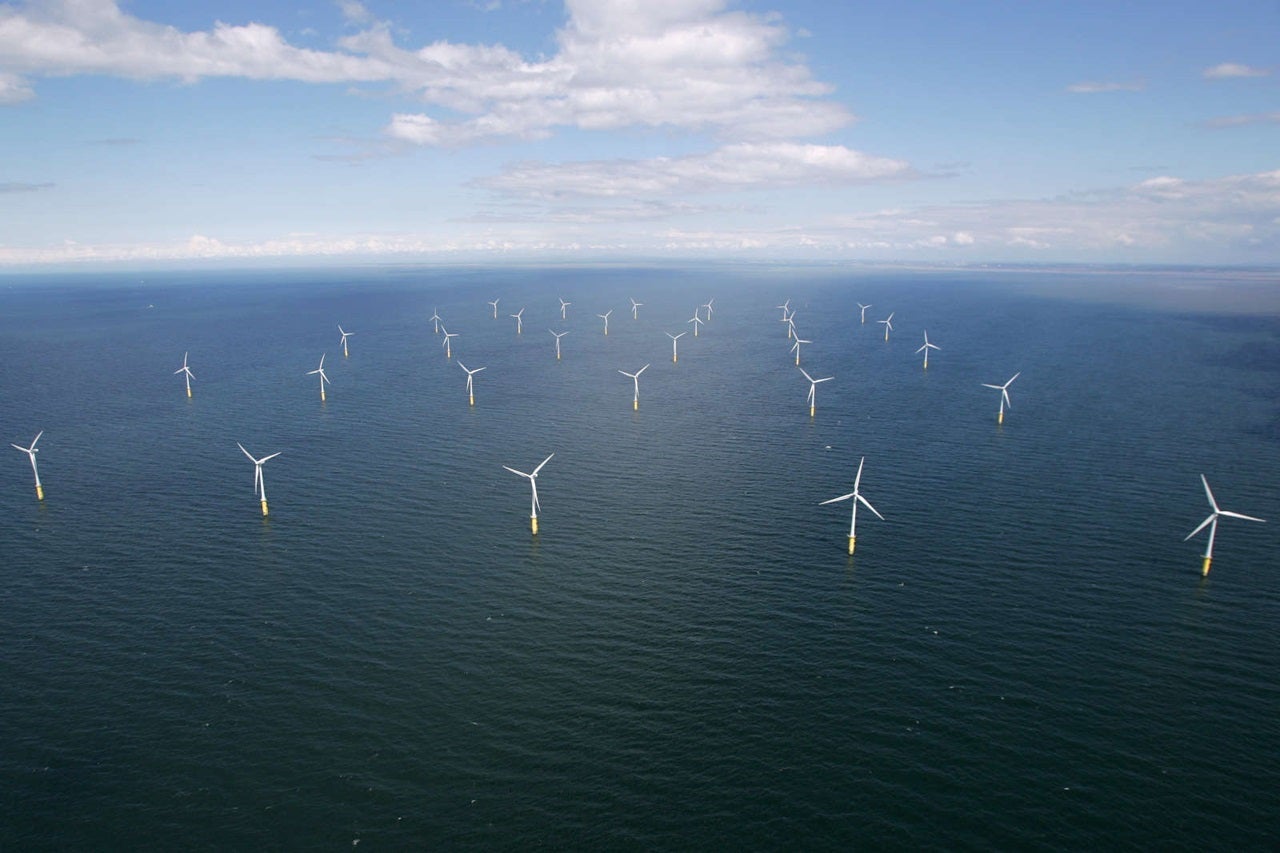
German energy company RWE Renewables plans to install its first patented ‘collared monopile’ turbine bases in the German North Sea.
RWE claims that its foundation technology will increase the load-bearing capacity and structural integrity of the entire foundation.

Discover B2B Marketing That Performs
Combine business intelligence and editorial excellence to reach engaged professionals across 36 leading media platforms.
Company spokespeople said it will install collared monopiles at seabed level on the 342MW Kaskasi offshore wind farm. Located 35km north of the island of Heligoland, the Kaskasi offshore wind farm will feature 38 wind turbines, with up to 9MW capacity each.
RWE Renewables Wind Offshore Global chief operating officer Sven Utermöhlen said: “The collared monopile, a patented solution developed in-house, will help to increase stability in difficult ground.
“The vibro pile driving technique will reduce both installation time as well as noise emissions for marine life.”
RWE has contracted DEME Offshore to transport and install the collared monopiles.

US Tariffs are shifting - will you react or anticipate?
Don’t let policy changes catch you off guard. Stay proactive with real-time data and expert analysis.
By GlobalDataDEME Offshore Northern Europe Business Unit director Bas Nekeman said: “Our versatile fleet of offshore installation vessels enables us to deploy the ideal vessel for this project and, in close collaboration with our client, we are tailoring the installation techniques and minimising any potential risks.”
The wind turbines will be installed on monopile foundations using an installation method known as vibro pile driving. This serves as an alternative for the conventional method of hammering monopiles into the seabed.
Bladt Industries will manufacture the collars. DEME Offshore will transport the collars from Bladt Industries’ load-out port in Aalborg, Denmark, to the construction site. Once RWE has installed the foundations, DEME will install them on three turbines at seabed level, in water depths of up to 25m.
RWE plans to install works at the site in the third quarter of next year.
Once fully installed, RWE will conduct tests to verify that the collar improves the structural behaviour in comparison to standard monopiles.
The Kaskasi offshore wind farm is expected to come online in 2022, with the capacity to power 400,000 homes. It will be RWE’s sixth wind farm off the German coast.





